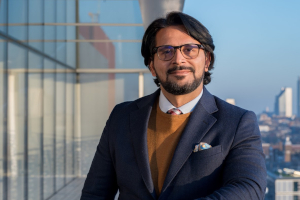This annual exploratory and informal workshop offers the opportunity to reflect on history writing in Arabic. This year the event will be held online to allow compliance with current UK social distancing guidelines. We hope to welcome newcomers to the workshop and to encourage a lively discussion – please do register using the link below. The programme is exciting as ever, with twenty-four papers treating history writing from the ninth century up to the present.
Papers will explore the following sorts of questions:
-
Through what practices of writing or otherwise encoding the past and of remembering and forgetting have different groups in the Middle East and North Africa viewed their pasts? At different times and places, how have the significant contours, events and actors in their histories been seen? Was the significant past the same for court historians as for literary historians, for bureaucrats as for the military, and for Sufis as for Muslim lawyers and traditionists?
-
How did non-Muslims and Muslims, men and women, adherents of different sectarian or juristic traditions, and speakers of different languages within societies that became Islamic imagine the shape and meaning of their specific societies’ own pasts and their relation to the universal history of the Islamic community?
-
How have urban and rural people, workers and peasants, and the religiously educated and the technocratic elite developed different ways of writing, remembering or commemorating particular events in, or the broad sweep of, local, national or Islamic history?
-
In what ways do educational institutions, museums, media organisations and proponents of heritage use history writing in Arabic to shape loyalties and senses of belonging in the Middle East, North Africa, and Europe?
The following colleagues will chair panels and facilitate conversation:
-
Julia Bray, University of Oxford
-
Fozia Bora, University of Leeds
-
Jaakko Hämeen-Anttila, University of Edinburgh
-
Konrad Hirschler, Freie Universität Berlin
-
Marie Legendre, University of Edinburgh
-
Andrew Marsham, University of Cambridge
-
Harry Munt, University of York
Arabic Pasts is co-organised by Hugh Kennedy (SOAS), James McDougall (Oxford) and Sarah Bowen Savant (AKU-ISMC).
Programme agenda: Arabic Pasts Schedule 2020
Booking is essential: please reserve your space
Venue: online
Contact: ismc.events@aku.edu
